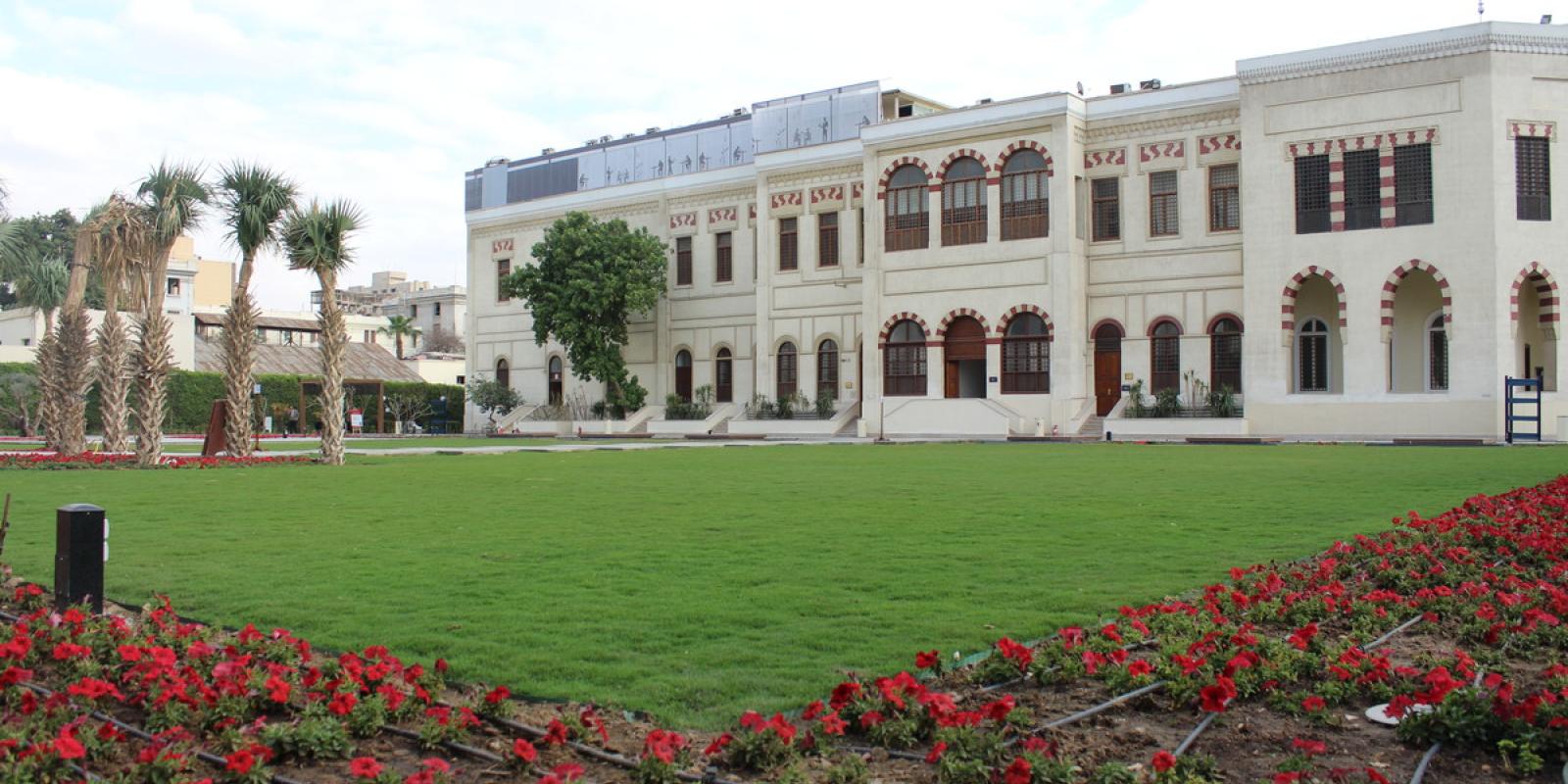
AUC to Establish Tahrir Cultural Center
AUC recently signed an agreement with prominent businessman and investor Naguib Sawiris, chairman of Orascom Investment Holding, to support the establishment of AUC’s Tahrir Cultural Center (TCC) on its Tahrir Square campus. The agreement also entails the renovation of the buildings and spaces that host the center on campus.
The grand opening of the TCC is set to take place in February, with the launch of AUC’s yearlong centennial celebrations in 2019.
Located in the heart of Cairo, AUC’s Tahrir Cultural Center will be fully owned, operated and programmed by AUC. It will host a broad range of events, from live music, dance performances, theatrical plays and movie screenings to art exhibitions, book clubs and conferences. AUC’s Tahrir Square campus will continue to host the University’s professional education and academic arts programs, as well as lectures, seminars and public events.
President Francis Ricciardone, Sawiris and other members of the AUC community attended the signing ceremony, which was held in Oriental Hall at AUC Tahrir Square. “AUC has always been an integral part of the Egyptian community,” said Ricciardone. “The TCC will enable us to realize our shared vision of revitalizing AUC’s traditional role as the fountainhead of cultural activity in Cairo’s Khedivial era downtown. We are grateful for the generosity and vision of Engineer Sawiris in supporting a vibrant arts and cultural activity in Egypt and the region.”
Sawiris, a longtime supporter of cultural and educational institutions in Egypt and worldwide, will support AUC’s establishment and renovation of the TCC to provide outstanding cultural and educational programs for Cairo residents, visitors, as well as AUC students and alumni. “I believe in the power of arts and culture in transforming communities and creating a long-lasting positive impact on youth and children, and I believe that we are in utmost need for this positive impact in today’s Egypt,” said Sawiris. AUC has spearheaded great projects to serve the community since its establishment in 1919, and I’m happy to partner with [the University] on this inspirational project. I can visualize a downtown that is beautified by this wonderful building that will serve as an oasis of creativity and intellect to Egyptians.”
The center’s activities will also provide a wealth of opportunities for real-world applications to the work of AUC students. “The center will serve as an addition to AUC’s Tahrir Square campus, without affecting the current and continuous operations of the University’s programs, lectures and activities,” said Aly Mourad, TCC director, “It will be a beacon of light in the heart of Cairo, spreading culture in all forms to Egyptians and visitors. We hope that the launch of the TCC will trigger the spread of other similar centers not only in Cairo, but in all governorates.”
Mourad added that culture is an accumulative process that starts with childhood and doesn’t have an age limit. That’s why the TCC won’t only be targeting youth –– where Egypt’s greatest potential lies –– but different age groups as well.
AUC’s Tahrir Square campus has been a witness to history since the early years of the past century. Inside the Historic Palace building in the Tahrir Square campus lie Oriental Hall and the newly renovated Ewart Memorial Hall, which has hosted distinguished national and international figures over the years. These include Egypt’s legendary singer Om Kolthoum, who performed on the Ewart Hall stage in 1937; prominent literary scholars Taha Hussein and Edward Said; author and humanitarian Hellen Keller; renowned linguist and philosopher Noam Chomsky; former U.S. Secretaries of State Hillary Clinton and Condoleezza Rice; Nobel laureates Naguib Mahfouz, Jimmy Carter, Kofi Annan, Al Gore and Ahmed Zewail; in addition to top dignitaries, ambassadors and intellectuals from around the world.
With the University’s move to AUC New Cairo in 2008, AUC Tahrir Square has continued to serve the University’s mission of advancing arts, education and culture.
